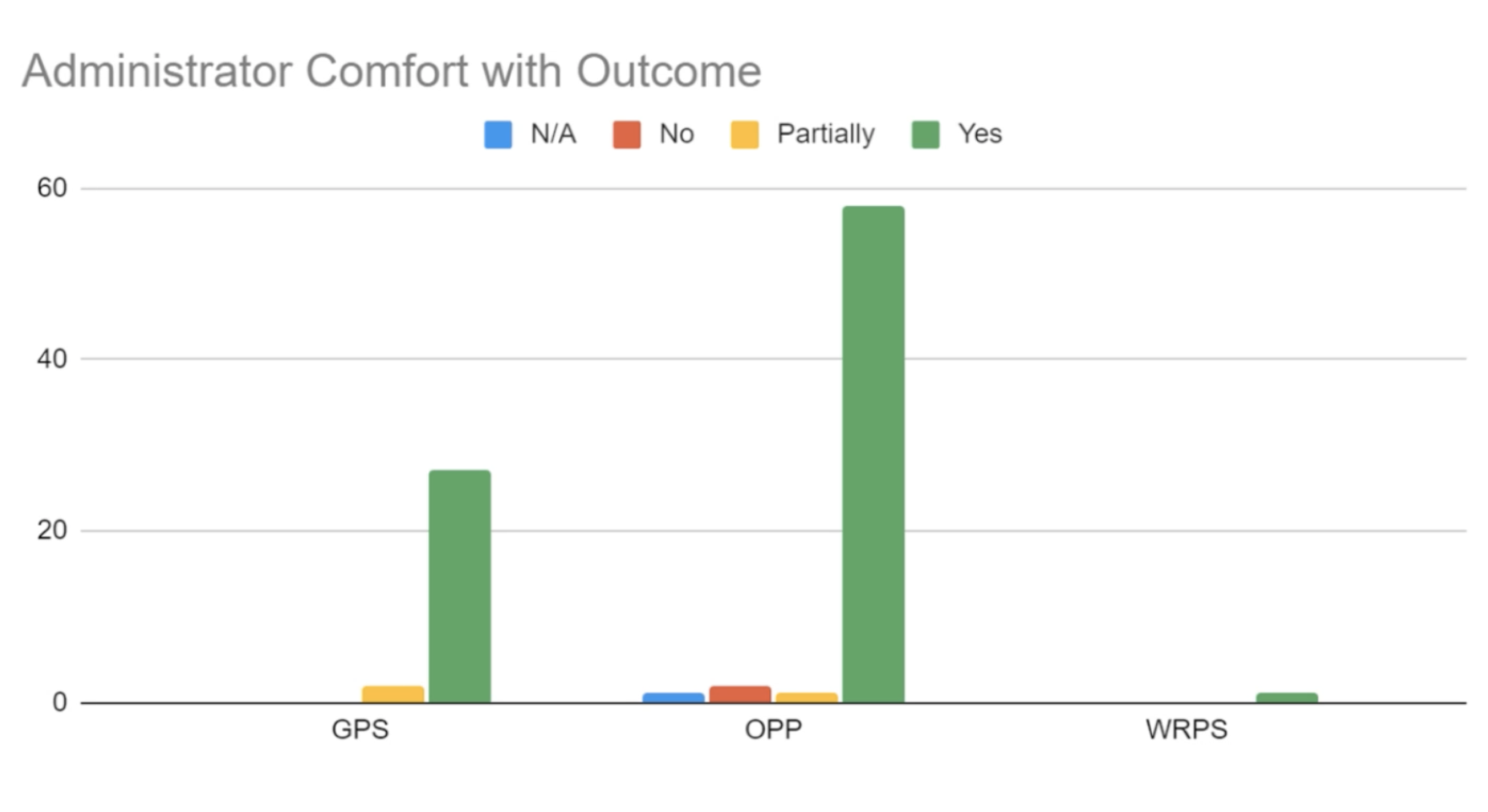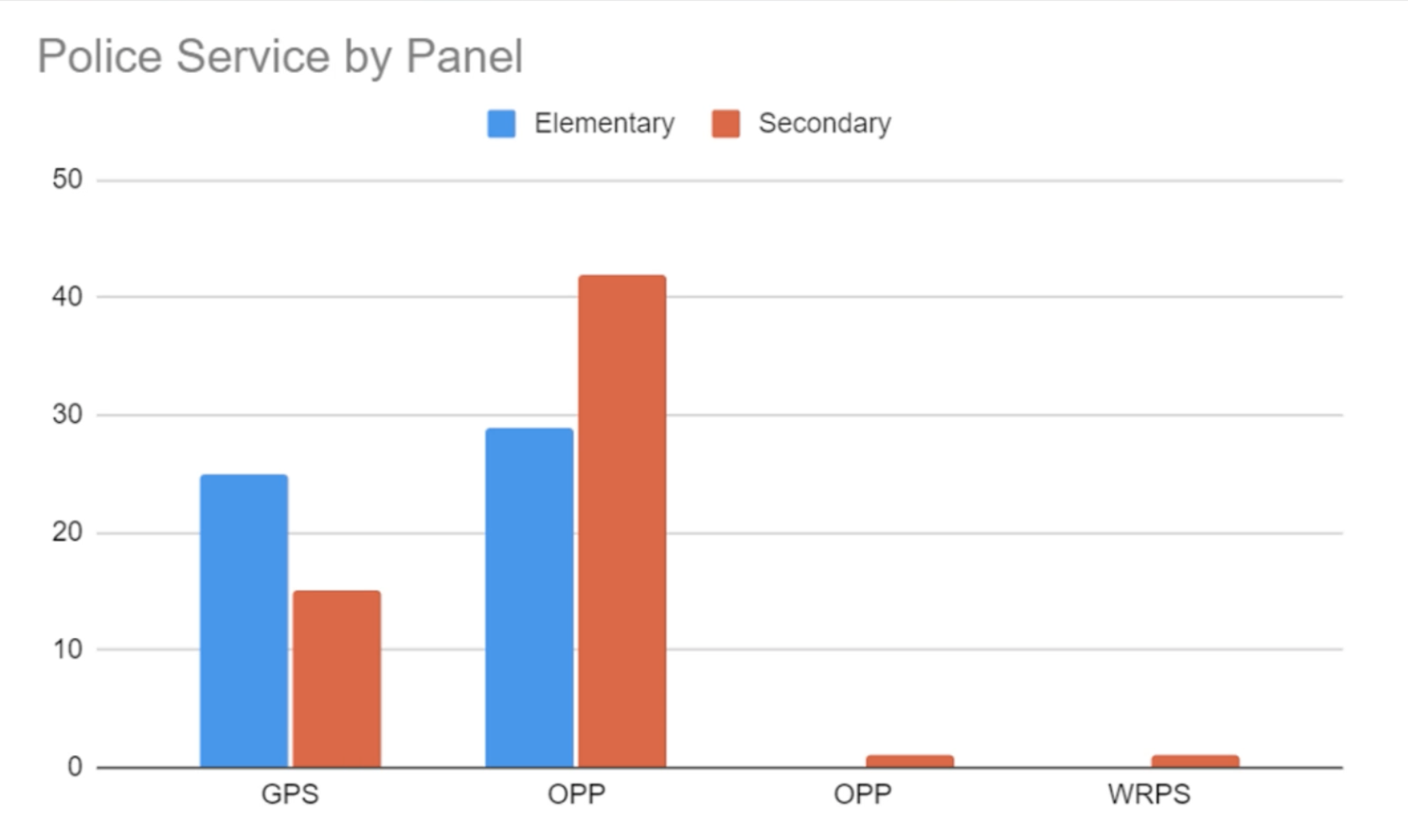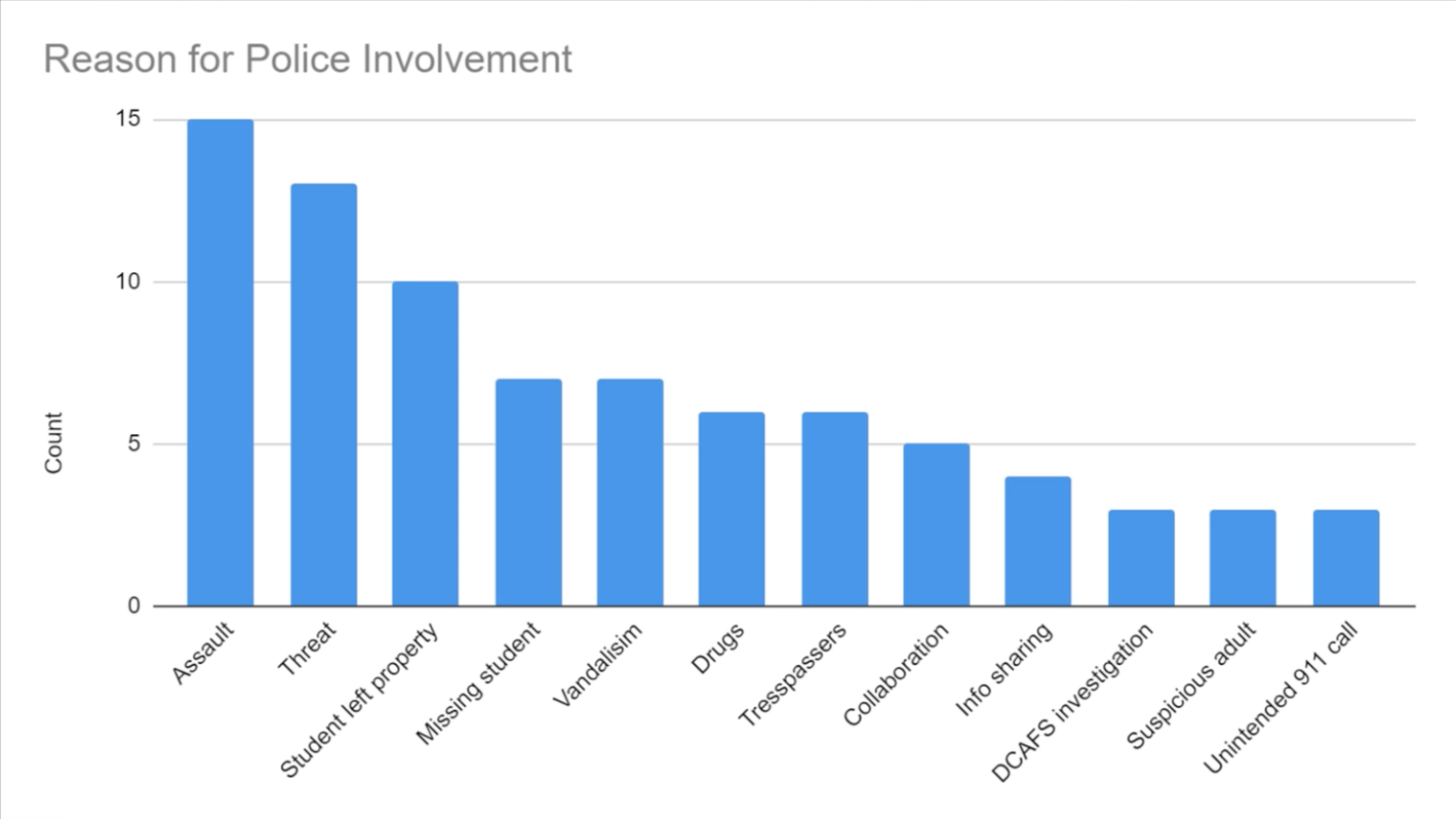GUELPH – Following the removal of the School Resource Officer (SRO) program last spring, schools in the Upper Grand District School Board (UGDSB) have been generally satisfied with police interactions, according to a recent report.
During a Feb. 22 UGDSB meeting, superintendent of education Brent McDonald provided trustees with an update on police presence in schools since the removal of the program.
The response from schools has been “overwhelmingly positive” and the schools have been “very satisfied” with the interactions the board has had to date this year, McDonald said.
In April, trustees passed a motion to remove the SRO program from all elementary and secondary schools. The motion required the board to follow seven recommendations aimed at reflecting an equity and human rights-based approach to working with police services in the UGDSB.
“Over the course of this year, [UGDSB] staff … have met multiple times with members of various police services to ensure the lines of communication remain open and that we are supporting each other in the work we are doing,” McDonald said.
With SROs not readily available in schools, McDonald noted additional officers needed to be trained to ensure police services staff were available to support students.

Data collected by the board shows UGDSB schools are generally satisfied with police interactions. (UGDSB report image)
Keeping in line with the seven recommendations, an additional 85 staff were trained in the board’s violent threat risk assessment (VTRA) protocol in January.
“This training will help immensely to ensure a timely response for when community partners need to come together quickly [and] support students and their families when violent threats are made within our communities,” McDonald explained.
He also noted that between September and January, the board saw an increase in the number of times VTRA partners were “called to the table” to provide supports to students, with 36 calls received, up from 19 calls in the 2020-21 school year.
As part of the recommendations to collect feedback on all police presentations in schools, McDonald said all presentations were vetted by a board staff team with police services and have been updated “to reflect greater diversity, language from an asset-based lens and the overall tone of their presentations.
“Both of these recommendations have been addressed in the work we are doing this year,” McDonald explained.
“Letters have been prepared for all police presentations to go home with students to their families.”
He added age-appropriate student feedback forms have also been created for use after each presentation.

Data collected showed there were 113 service visits by police to UGDSB schools from September to Jan. 30. (UGDSB report image)
While all the action steps from the recommendations were addressed throughout the summer and the fall, McDonald noted the board has not yet been able to implement them this year with the pandemic putting school-wide assemblies and in-person presentations on hold.
UGDSB staff have also developed an internal data collection system – as per the recommendations – to gather data on the frequency and nature of police calls to schools, which is reviewed annually with police services and board staff.
Data collection presented by McDonald showed there were 113 service visits by police to UGDSB schools from September to Jan. 30.
Of the 113 calls received, the OPP responded to 72 calls, Guelph Police Service responded to 40 and Waterloo Regional Police Service responded to one call.
“The data collected initial feedback from our schools about their interactions with our police partners was overwhelmingly positive,” McDonald explained.
“The data collected has also allowed us to have additional conversations with schools about the reasons police may be called to schools and for us to examine additional de-escalation strategies that could be used in the future prior to making calls.”

An overview of the types of calls received. (UGDSB report image)
McDonald noted the data collected is preliminary and will provide a baseline for the board to compare and identify trends moving forward.
Next steps for data collection will include continuing to build the database “to look at how we can incorporate the identity-based data we are preparing to collect with our students,” he explained, as required by the Ministry of Education.
McDonald said the board currently has a plan and is looking to be in the “data collection phase of this project” by the fall of the 2022-23 school year.
“This will eventually enable us to use this identity-based data and layer it on top of the data shared this evening to determine if there any groups of students that are disproportionately represented in any of the metrics we are collecting,” he explained.
“The analysis of the resulting data will further inform our practices and help us continually improve as a school system for all of our students.”
A review of the protocol will be coming in the second half of the school year to ensure its prepared and ready for the 2022-23 year.
“We anticipate this process to start in the early spring of this year,” McDonald said.




